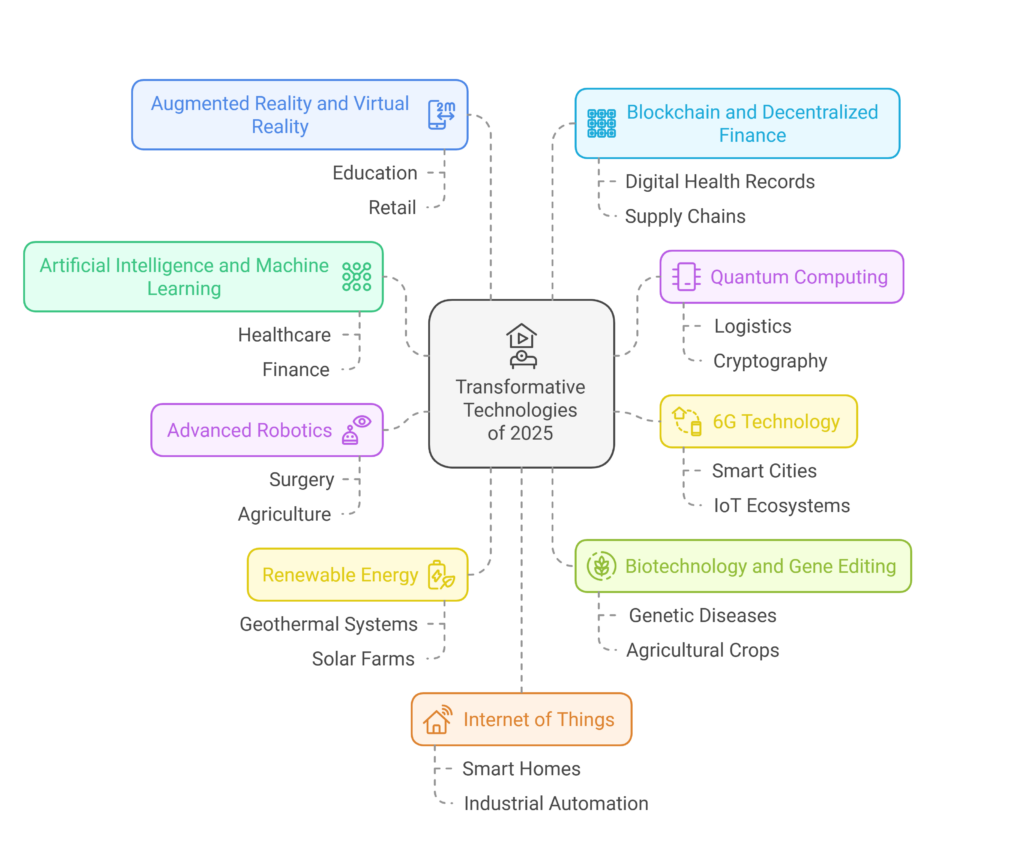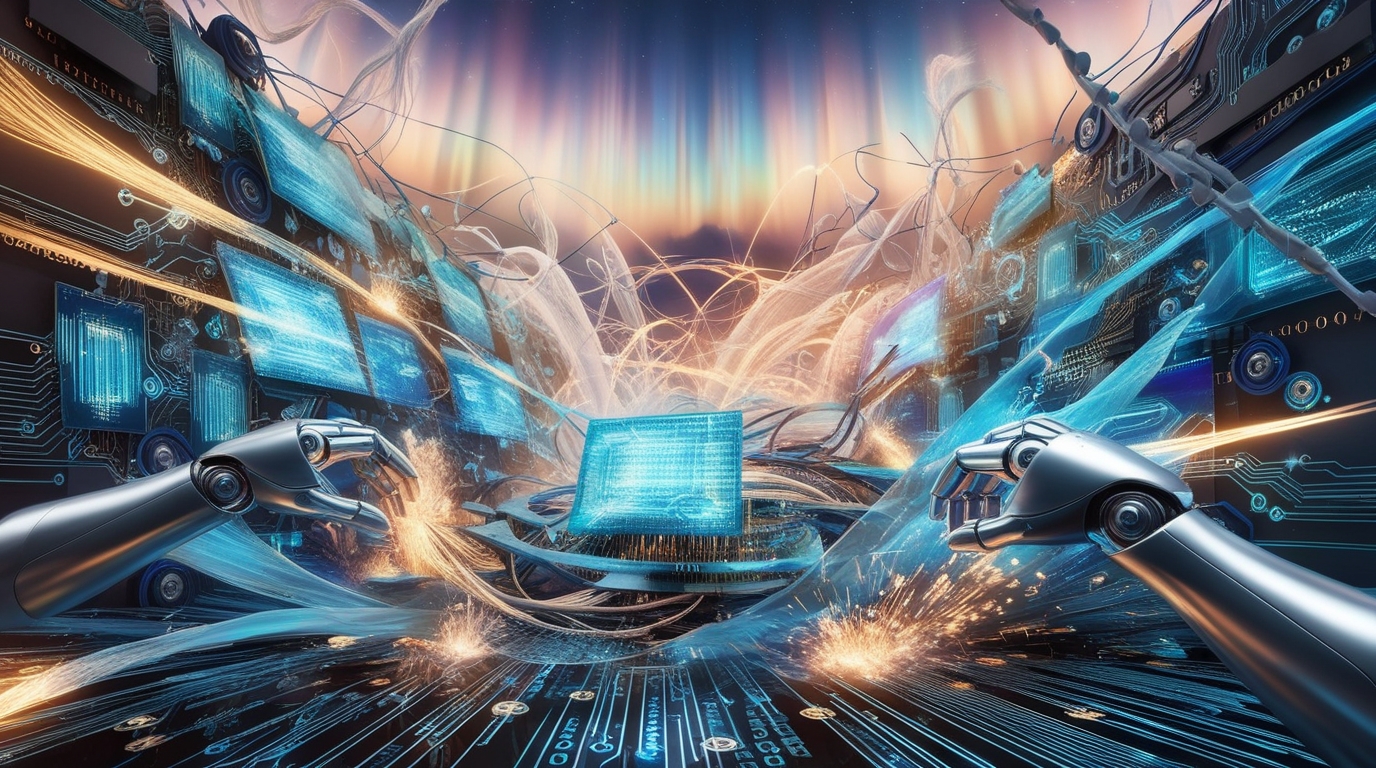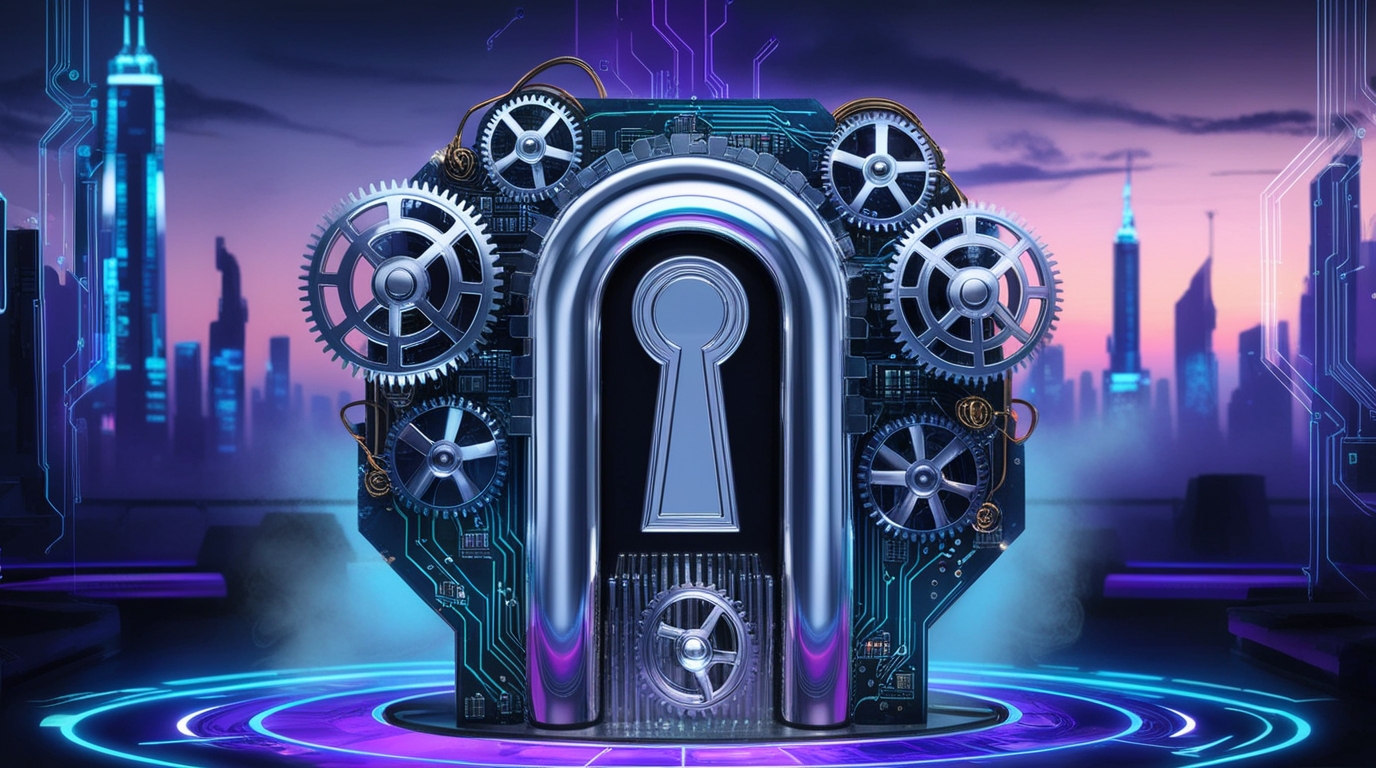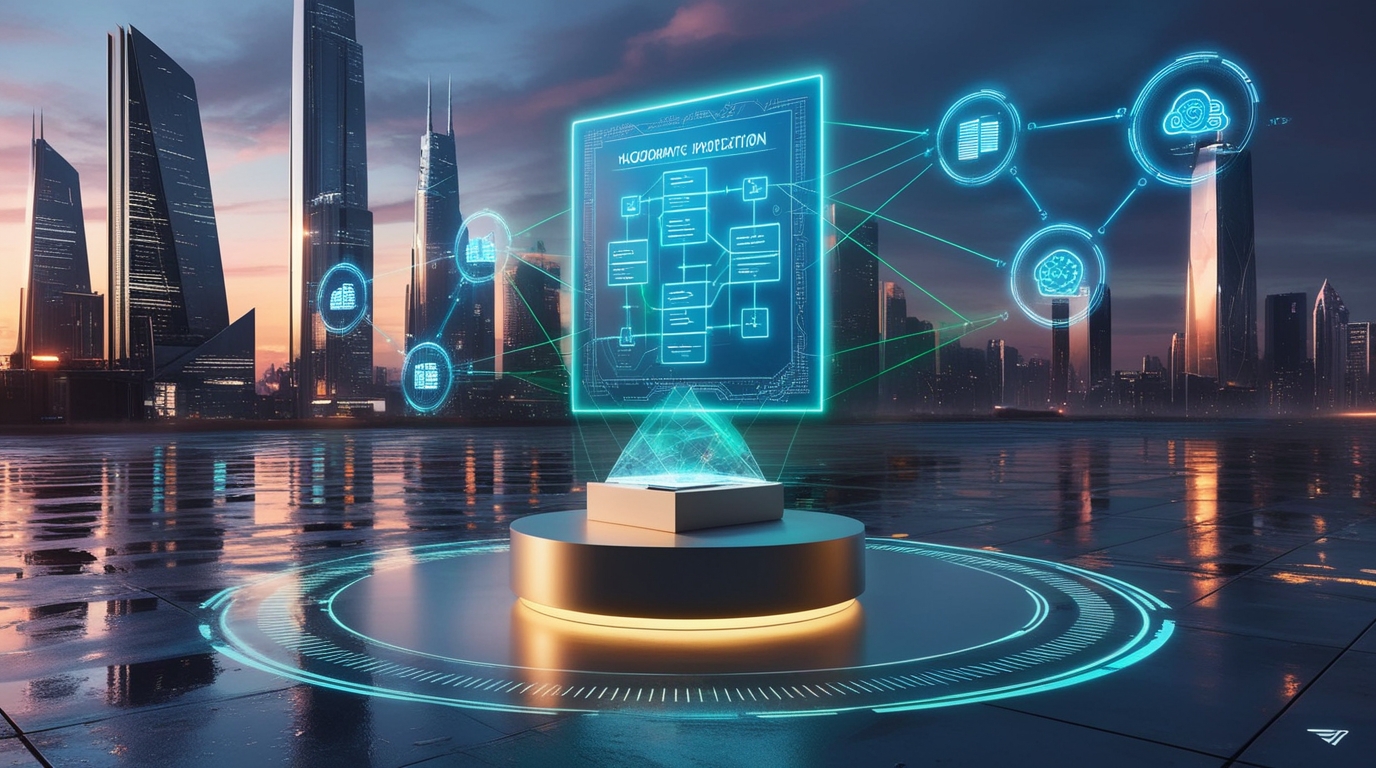Imagine this: your morning coffee brewed by a robot, quantum computers unraveling life’s mysteries before you’ve even opened your laptop, and AI writing your emails and predicting your next big business move. What sounds like a sci-fi movie is, in fact, the reality of our near future. In 2025, technology isn’t just advancing—it’s leaping forward, fundamentally reshaping industries and daily life. Let’s explore the ten most transformative technologies redefining what’s possible.
1. Artificial Intelligence (AI) and Machine Learning (ML): The New Electricity
Andrew Ng, co-founder of Coursera, famously said, “AI is the new electricity.” Just as electricity revolutionized industries, AI transforms everything from healthcare to finance. But 2025 will take it further—beyond chatbots and Netflix recommendations. Companies like DeepMind are solving problems previously thought unsolvable, such as predicting protein structures, a breakthrough that could revolutionize drug discovery.
AI also enables personalized learning experiences in education, automates repetitive tasks in the workplace, and provides predictive analytics that drives better business decisions. For example, AI-powered diagnostic tools are helping doctors detect diseases earlier and more accurately than ever.
2. Quantum Computing: Cracking the Uncrackable
Quantum computing is poised to tackle complex problems that even today’s fastest supercomputers would take millennia to solve. IBM’s Quantum System One is already operational, with groundbreaking logistics, cryptography, and material science applications. Consider it moving from playing checkers to mastering chess in a single leap.
Quantum computing’s ability to process vast amounts of data simultaneously has the potential to revolutionize fields like drug discovery, financial modeling, and climate prediction. For instance, it could optimize supply chains for global manufacturers or help researchers understand complex chemical reactions.
3. 6G Technology: Speed Meets Possibility
While most of us still marvel at 5G, researchers are already building 6G—promising speeds 100 times faster and near-zero latency. Imagine real-time holographic calls or autonomous vehicles communicating instantaneously. Companies like Samsung and Nokia predict 6G will power smart cities and advanced IoT ecosystems by 2030.
6G is expected to enable groundbreaking applications such as tactile internet for remote surgeries, immersive augmented reality experiences, and seamless global connectivity. Its low latency will also be critical for mission-critical tasks, such as disaster response and advanced robotics.
4. Advanced Robotics: Machines with Purpose
Robots are no longer confined to assembly lines. They’re assisting in surgeries, harvesting crops, and even serving as companions for the elderly. Boston Dynamics’ robots navigate complex terrains, making them invaluable for disaster response, while Japan’s “Pepper” robots help combat loneliness in aging populations.
In industries like construction and logistics, robots are performing hazardous tasks, improving safety and efficiency. Surgical robots enhance precision in operating rooms, while agricultural robots boost productivity by planting, monitoring, and harvesting crops with minimal human intervention.
5. Renewable Energy: Innovations for a Greener Planet
Climate change has pushed renewable energy technologies to the forefront. From enhanced geothermal systems to floating solar farms, the innovations are astounding. Ørsted, a leader in renewables, is developing offshore wind farms capable of powering millions of homes. As Bill Gates emphasizes, “Renewables are the only path to a sustainable future.”
Energy storage technologies, such as advanced batteries, are also evolving rapidly, enabling more efficient use of renewable energy. Breakthroughs in hydrogen fuel cells and wave energy pave the way for cleaner and more reliable energy sources.
6. Biotechnology and Gene Editing: Rewriting the Code of Life
CRISPR is no longer a buzzword—it’s a game-changer. Scientists are editing genes with precision to cure genetic diseases and create climate-resilient crops. Vertex Pharmaceuticals, for instance, has developed a CRISPR-based treatment for sickle cell disease, offering hope to millions.
Beyond healthcare, gene editing is revolutionizing agriculture by creating drought-resistant crops and livestock with improved productivity. It’s also paving the way for synthetic biology, enabling the creation of bioengineered materials and sustainable biofuels.
7. Augmented Reality (AR) and Virtual Reality (VR): Beyond Entertainment
Once the domain of gamers, AR and VR are now revolutionizing industries. Imagine touring a home across the globe or practicing surgery in a virtual operating room. Meta’s Horizon Workrooms redefines remote collaboration, making virtual meetings immersive and productive.
AR and VR transform learning in education by creating interactive and engaging experiences, such as virtual field trips and realistic training simulations. Retailers use AR to let customers visualize products in their homes before purchasing.
8. Blockchain and Decentralized Finance (DeFi): Redefining Trust
Blockchain’s potential extends far beyond cryptocurrencies. It enables secure voting, transparent supply chains, and decentralized finance systems. Estonia has already used blockchain to manage digital health records, setting a global benchmark for privacy and efficiency.
Smart contracts are streamlining complex transactions, reducing costs, and increasing transparency. Blockchain is also being explored for applications like secure digital identities and tamper-proof record-keeping in healthcare and real estate industries.
9. Internet of Things (IoT): A Seamlessly Connected World
By 2025, over 75 billion devices will be connected globally, embedding IoT into every facet of life. IoT creates a seamlessly connected world, from smart homes to industrial automation. Siemens, for example, uses IoT to predict factory maintenance needs, preventing costly downtime.
IoT also transforms urban infrastructure with smart city applications, such as intelligent traffic management and energy-efficient buildings. In healthcare, wearable IoT devices enable real-time health monitoring and personalized care.
10. Advanced Materials and Nanotechnology: Engineering the Future
Nanotechnology enables materials with extraordinary properties—stronger than steel yet lighter than plastic. Innovations like graphene are revolutionizing industries, from healthcare to aerospace. Imagine faster-charging, longer-lasting batteries powering the devices of tomorrow.
Advanced materials are also critical for renewable energy, with innovations like perovskite solar cells promising higher efficiency at lower costs. In medicine, nanotechnology is used for targeted drug delivery, enhancing treatment outcomes and minimizing side effects.
The Takeaway: Are You Ready for What’s Next?
As we approach 2025, these technologies are not just trends—they’re transformative forces that will shape the future. The real question isn’t whether these innovations will impact your life, but how prepared you are to embrace them.
So, are you ready to step into the future?
For more insights on AI’s transformative power, check out this talk by Andrew Ng, which explains why AI truly is the “new electricity.”
Video: Andrew Ng: Artificial Intelligence is the New Electricity









